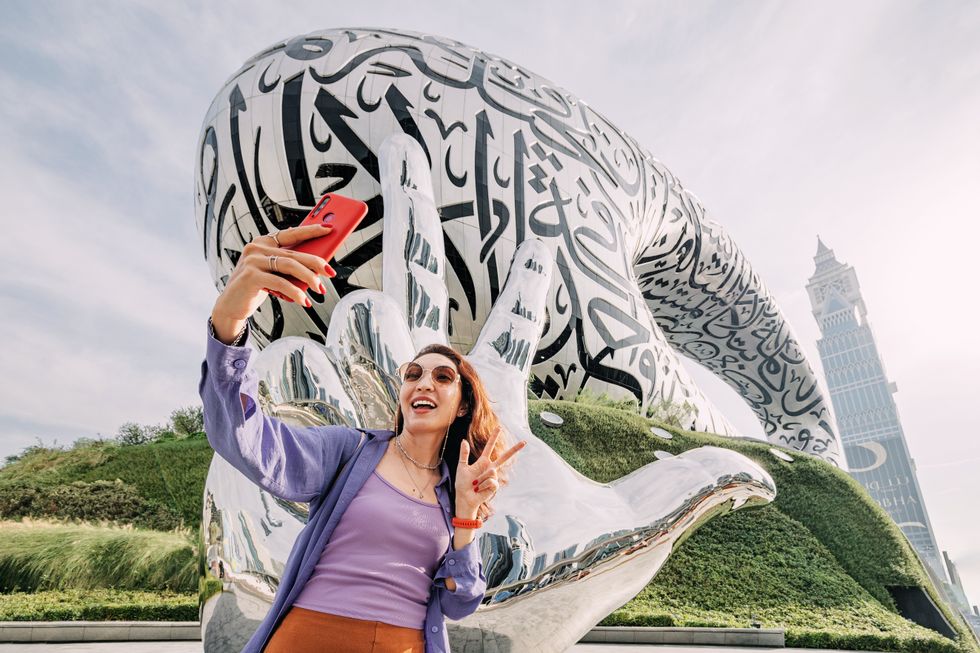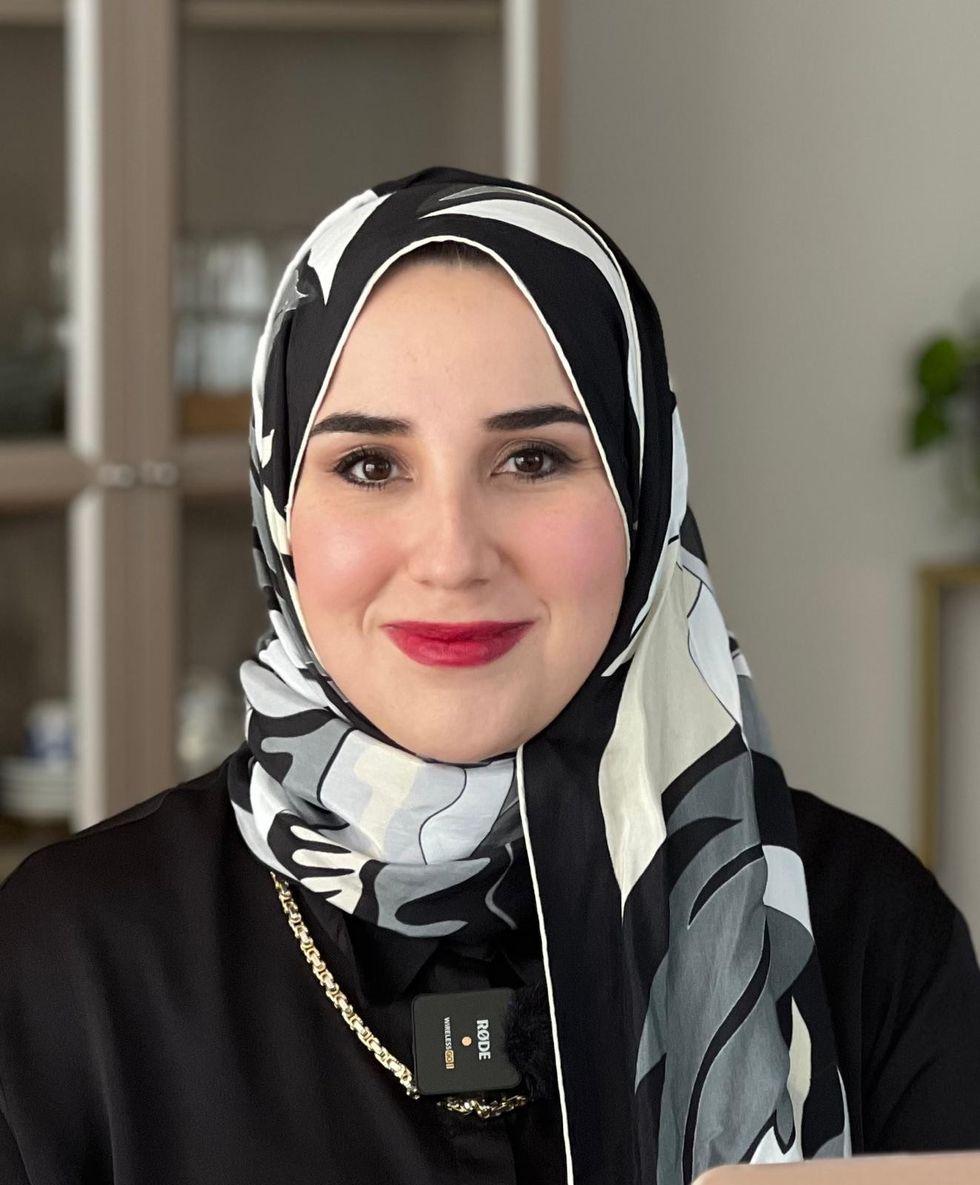Influencer economy: Here to stay or a bubble waiting to burst?
Nukta asked, and an expert answered.

Mai Khalaf
Senior Producer
Mai Khalaf is a journalist with over 10 years of experience in digital strategy, news and content production, contributing to leading MENA media organizations. She holds a diverse academic background in journalism, global affairs, and psychology.

More than 25,000 influencers live in the UAE
Canva
Influencer marketing in UAE sees continuous growth despite challenges.
Influencer market evolution beyond the 'bubble' narrative, say experts.
Strategic partnerships, authenticity key to long-term influencer success.
The headline 'The Influencer Bubble is About to Burst' repeatedly appears as you scroll through Google search results.
Marketing, as we knew it, has changed. For nearly a decade, the debate has been buzzing — how did influencers become the new billboards? Marketing pros, analysts, and the "influenced" alike have been scratching their heads over this trend that's flipped the script, swapping out traditional ads and media for real-life people as the ultimate marketing medium.
A hub for influencers
It is no secret that the UAE has become home to more than 25,000 influencers, according to a recent Wired update. The young Gulf state has become an attractive destination for thousands of expat influencers and content creators who have relocated from all over the world to live in the UAE and work as influencers, contributing to the growing economy.
These influencers are part of Dubai's social media scene across all platforms, whether it is TikTok, Instagram, YouTube, you name it. They are strategically armed with their loyal followers and engaging content, using these valuable resources to effectively deliver the message from brands to consumers.

To attract content creators and influencers, the UAE government formulated regulations such as the Golden Visa, tax-free income, a rich ecosystem of job and partnership opportunities, and other facilities.
An industry, not just a 'bubble'
Ethar Al-Saadi, an influencer marketing and personal branding consultant and entrepreneur who specializes in the GCC market, spoke to Nukta about influencer marketing and its longevity.

“The idea of a ‘bubble’ refers to media phenomena and marketing strategies that evolve and become more organized over time," she said. She belives that influencer marketing is not just a passing trend but part of a broader evolution in media and marketing.
“The demand for entertainment hasn't decreased; it’s the tools and characters that have evolved," she added.
This evolution is reflected in the dynamic influencer landscape in the UAE and the region.
Al-Saadi's argument aligned with the previous statement of the chief executive of the New Media Academy in the UAE, Alia Al-Hammadi, who said:
“It’s not just a bunch of youth standing in front of the camera for the sake of fun and entertainment... It’s a multimillion-dollar industry, and it’s expected to keep growing,”
Al-Hammadi’s statement reflects the UAE’s strategic vision to be the content creators and influencers' hub, both regionally and globally.
Globally, the influencer marketing industry reached $24 billion in 2024, up from $1.7 billion in 2016, according to Statista. The Middle East is part of this growth, as the influencer marketing industry is set to hit $1.3 billion in 2023, according to a YouGov survey.
'Audience became more selective'
Although growing, this method of marketing has gone through a long journey of ups and downs. Recently, consumers have become more skeptical about relying on influencer recommendations when making buying decisions.
“Audiences are becoming smarter and more selective, so influencers must continuously develop themselves,” Al-Saadi said. This evolution doesn’t indicate that followers no longer trust influencers, but rather that consumer behavior is shifting as they become more critical.
A study published in the Journal of University Studies for Inclusive Research in 2024 found that consumers in the UAE place a high value on influencers' attitudes, reputation, and content accuracy when making purchasing choices. However, an impressive 89.2% of UAE participants agreed that a social media influencer’s reputation affects their buying decisions.
This industry faces more challenges lately. According to Al-Saadi, challenges can be concluded as follows:
- Value over visibility: “Content creation is no longer just about visibility; it’s about value. Audiences today want authenticity, education, and connection.”
- Maintaining authenticity: “The influencers who will thrive are those who can balance brand partnerships with personal integrity. Audiences can easily spot inauthentic content.”
- Increasing competition: “The influencer space is more competitive than ever, pushing creators to innovate. Those who adapt quickly and offer something unique will succeed.”
- Data-driven decisions: “Data is becoming the backbone of influencer marketing. Influencers must understand their audience on a deeper level to meet brand expectations.”
- Strategic Partnerships and Balance: “Influencers must align with companies that share their values and vision to ensure long-term success and preserve audience trust.”
Future of influencer marketing in UAE
Despite the challenges, the influencer market is expected to continue growing, as brands in the UAE plan to increase their spending on influencer advertising. According to Statista, ad spending on the influencer advertising market in the UAE is projected to reach $61.9 million by the end of 2024. It is expected to show an annual growth rate (CAGR 2024-2028) of 8.57%, resulting in a projected market volume of $86 million by 2028.
As Al-Saadi pointed out,
“The demand for new influencers and content creators will continue as long as the internet exists.”
This enduring demand highlights that influencer marketing is far from being a bubble—it’s a constantly evolving industry that adapts to changes in both technology and consumer behavior.
However, according to Saadi, “The industry needs regulation to ensure ethical practices, prevent misinformation, and maintain content quality, much like traditional media was regulated”. This call for regulation underscores the need for a sustainable and responsible approach to the growing influence of social media personalities.







Comments
See what people are discussing